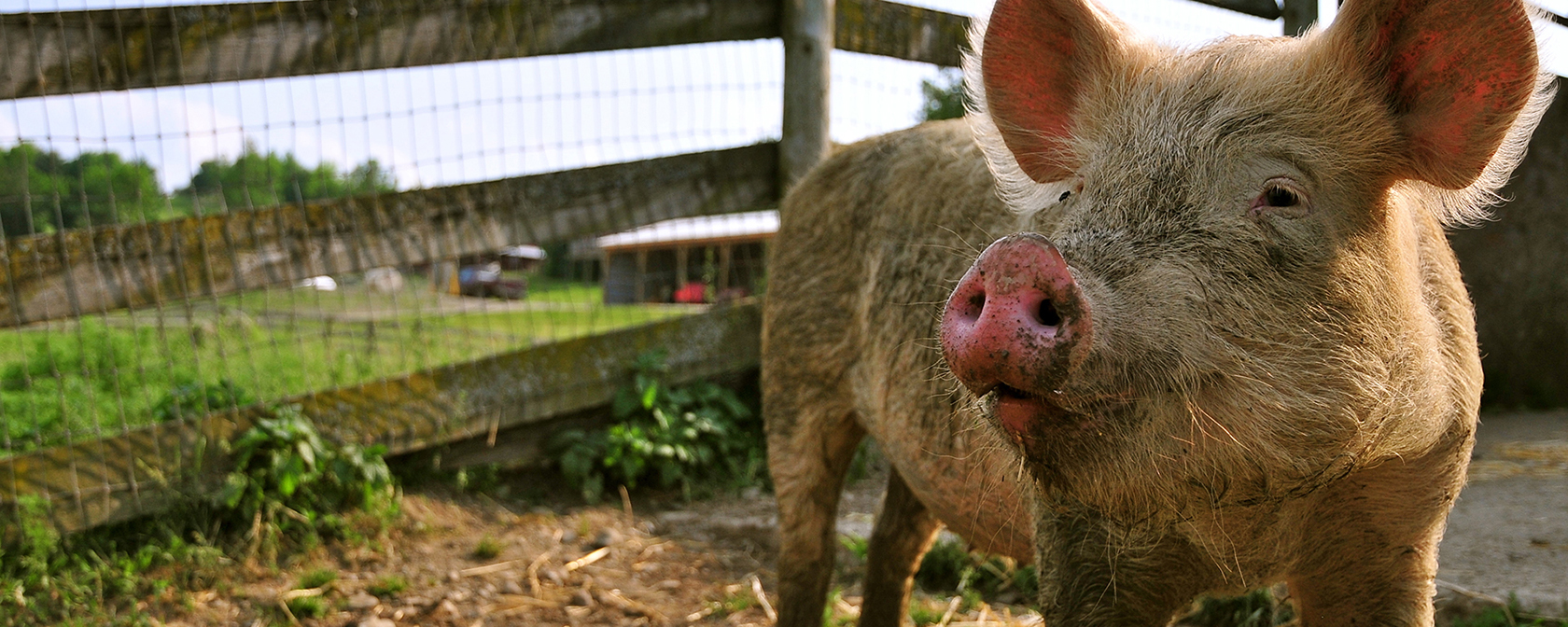Each year, we use the Humane Scorecard to provide a snapshot of some key animal protection issues and this year is no different. There are many new members of the U.S. House of Representatives and Senate in the 118th Congress who need to see the importance of animals in our communities—and there’s still time.
We have posted the preview version of our annual Humane Scorecard, and we hope you’ll check it out. It helps you gauge where federal legislators stand on our core priorities, and for some of them, it’s motivation to do more. Before the first session of the 118th Congress wraps up for Senators and Representatives, please call and ask them to cosponsor priority bills to boost their scores.
In addition to providing a means to hold legislators accountable, our annual scorecard can create incentives, such as offering extra credit to those who spoke out against the dangerous EATS Act that seeks to undo crucial state laws protecting farm animals. It also offers us a way to encourage leadership on key animal protection measures and to shine a spotlight on exciting new legislation.
For example, we worked this year with bipartisan leaders in the Senate and House to have them introduce the Better Collaboration, Accountability, and Regulatory Enforcement (CARE) for Animals Act (S. 2555/H.R. 5041). This bill will give the Department of Justice (DOJ) more tools to strengthen enforcement of the Animal Welfare Act and deter violations that can harm animals at commercial breeding facilities, research labs, roadside zoos, and other facilities. It will enable DOJ to seek meaningful penalties and encourage greater collaboration with the U.S. Department of Agriculture to ensure that DOJ has access to evidence needed to initiate cases. Because of current limitations in DOJ’s authority, too many operators are getting away with egregious abuses. When we first notified congressional offices in early October that we’re counting the Better CARE for Animals Act on the 2023 scorecard, its co-sponsor counts stood at two in the Senate and 16 in the House. Now there are 18 Senate cosponsors and 126 House cosponsors.
Likewise, the other bills we’re counting have seen significant jumps in sponsorship since we put offices on notice that we’re scoring them. The Prevent All Soring Tactics (PAST) Act (H.R. 3090), to end that infamous training barn cruelty against Tennessee walking horses and related breeds, now has 226 House cosponsors. The Puppy Protection Act (H.R. 1624), to address gaps in welfare standards for tens of thousands of breeding dogs and puppies, has 209. The Save America’s Forgotten Equines (SAFE) Act (H.R. 3475), to prohibit the reopening of horse slaughter plants in the U.S. as well as the export of American horses for slaughter, has 177. The Humane Cosmetics Act (H.R. 5399), to phase out testing of cosmetics on live animals and the sale of animal-tested cosmetics in the U.S., has 166.
Each one of these bills enjoys strong bipartisan sponsorship and support. This is no accident. We put our muscle behind compelling measures we think the Congress will pass once we make the case. Animal protection continues to transcend partisan divides, reflecting the American public’s compassion and support for addressing these concerns.
We’re hopeful that we’ll be able to advance to passage several, if not all, of these measures by the end of the 118th Congress, on their own or as provisions included within larger legislative packages.
Increasing co-sponsor rosters builds momentum and sends a clear signal to congressional leaders that legislation is ripe for action. That’s where you come in. We’re sharing the preview scorecard with congressional offices and asking them to sign on to the bills we’ve chosen to score, and you can do the same with your U.S. representative and two U.S. senators. Check out their current status on these bills and reach out to make sure they know that they still have time to boost their scores before the end of the 118th Congress first session and that it’s important to you that they do so.




